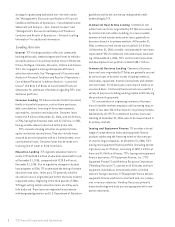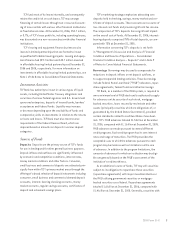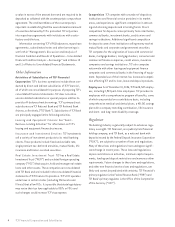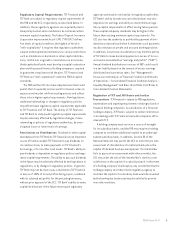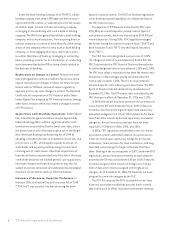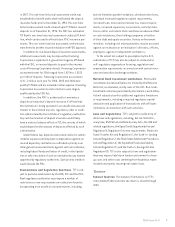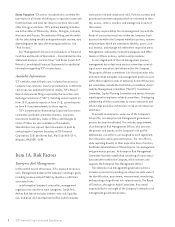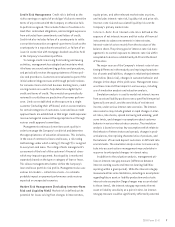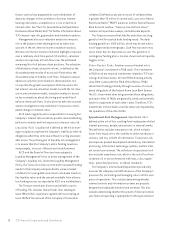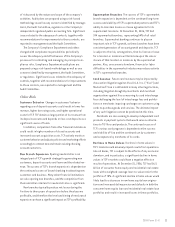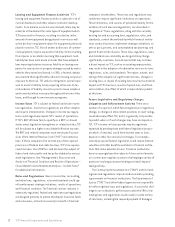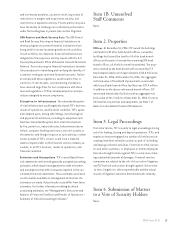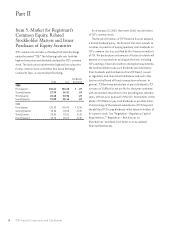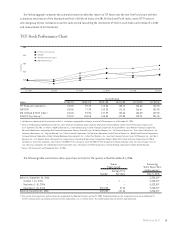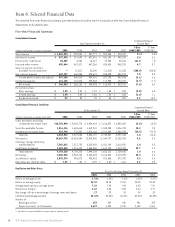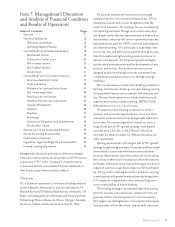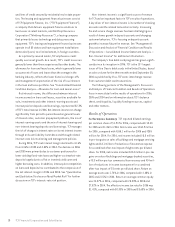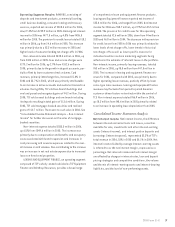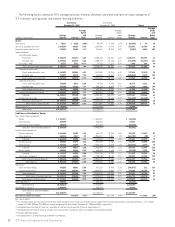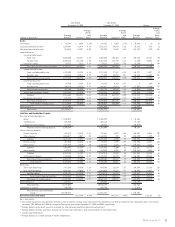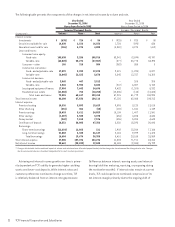TCF Bank 2006 Annual Report Download - page 32
Download and view the complete annual report
Please find page 32 of the 2006 TCF Bank annual report below. You can navigate through the pages in the report by either clicking on the pages listed below, or by using the keyword search tool below to find specific information within the annual report.
Leasing and Equipment Finance Activities TCF’s
leasing and equipment finance activity is subject to risk of
cyclical downturns and other adverse economic develop-
ments. In an adverse economic environment, there may be
a decline in the demand for some types of equipment which
TCF leases and/or finances, resulting in a decline in the
amount of new equipment being placed in service as well
as the decline in equipment values for equipment previously
placed in service. TCF, like all owners and lessors of commer-
cial equipment, may be exposed to liability claims resulting
from injuries or accidents involving that equipment. Such
liability has been most acute in states that have adopted
laws imposing statutory vicarious liability on leasing com-
panies for any injuries or property damage caused by motor
vehicles they owned and leased. In 2005, a federal statute
was enacted that significantly reduced a leasing company’s
exposure to that risk. TCF seeks to mitigate its overall expo-
sure to lessor’s liability risk by requiring all lessees to fur-
nish evidence of liability insurance prior to lease inception
and to maintain that insurance throughout the term of the
lease, and through its own insurance programs.
Income Taxes TCF is subject to federal and state income
tax regulations. Income tax regulations are often complex
and require interpretation. Changes in income tax regula-
tions could negatively impact TCF’s results of operations.
If TCF’s REIT affiliate fails to qualify as a REIT, or should
states enact legislation taxing these or related entities, TCF
will be subject to a higher consolidated effective tax rate.
The REIT and related companies must meet specific provi-
sions of the Internal Revenue Code (“IRC”) and state tax
laws. If these companies fail to meet any of the required
provisions of federal and state tax laws, TCF’s tax expense
could increase. Use of REITs is and has been the subject of
federal and state audits and tax policy debates by various
state legislatures. See “Management’s Discussion and
Analysis of Financial Condition and Results of Operations –
Consolidated Income Statement Analysis – Income Taxes”
for additional information.
Rules and Regulations New or revised tax, accounting,
and other laws, regulations, rules and standards could sig-
nificantly impact strategic initiatives, results of operations,
and financial condition. The financial services industry is
extensively regulated. Federal and state laws and regulations
are designed primarily to protect the deposit insurance funds
and consumers, and not necessarily to benefit a financial
company’s shareholders. These laws and regulations may
sometimes impose significant limitations on operations.
These limitations, and sources of potential liability for the
violation of such laws and regulations, are described in
“Regulation.” These regulations, along with the currently
existing tax and accounting laws, regulations, rules, and
standards, control the methods by which financial institu-
tions conduct business; implement strategic initiatives, as
well as past, present, and contemplated tax planning; and
govern financial disclosures. These laws, regulations, rules,
and standards are constantly evolving and may change
significantly over time. Current events that may not have
a direct impact on TCF, such as accounting improprieties,
may result in the adoption of substantive revisions to laws,
regulations, rules, and standards. The nature, extent, and
timing of the adoption of significant new laws, changes in
existing laws, or repeal of existing laws may have a material
impact on TCF’s business, results of operations, and finan-
cial condition, the effect of which is impossible to predict
at this time.
Future Legislative and Regulatory Change;
Litigation and Enforcement Activity There are a
number of respects in which future legislative or regulatory
change, or changes in enforcement practices or court rulings,
could adversely affect TCF, and it is generally not possible
to predict when or if such changes may have an impact on
TCF. TCF’s income in future periods may be negatively
impacted by pending state and federal legislative propos-
als which, if enacted, could limit interest rates or loan,
deposit or other fees and service charges. For example,
recently proposed federal legislation could reduce interest
subsidies and other benefits available to financial institu-
tions that make education loans. Financial institutions
have increasingly been the subject of class action lawsuits
or in some cases regulatory actions challenging a variety of
practices involving consumer lending and retail deposit-
taking activity.
The Community Reinvestment Act (“CRA”) and fair lend-
ing laws and regulations impose nondiscriminatory lending
requirements on financial institutions. The Department of
Justice (“DOJ”) and other federal agencies are responsible
for enforcing these laws and regulations. A successful chal-
lenge to an institution’s performance under the CRA or fair
lending laws and regulations could result in a wide variety
of sanctions, including the required payment of damages
12 TCF Financial Corporation and Subsidiaries


